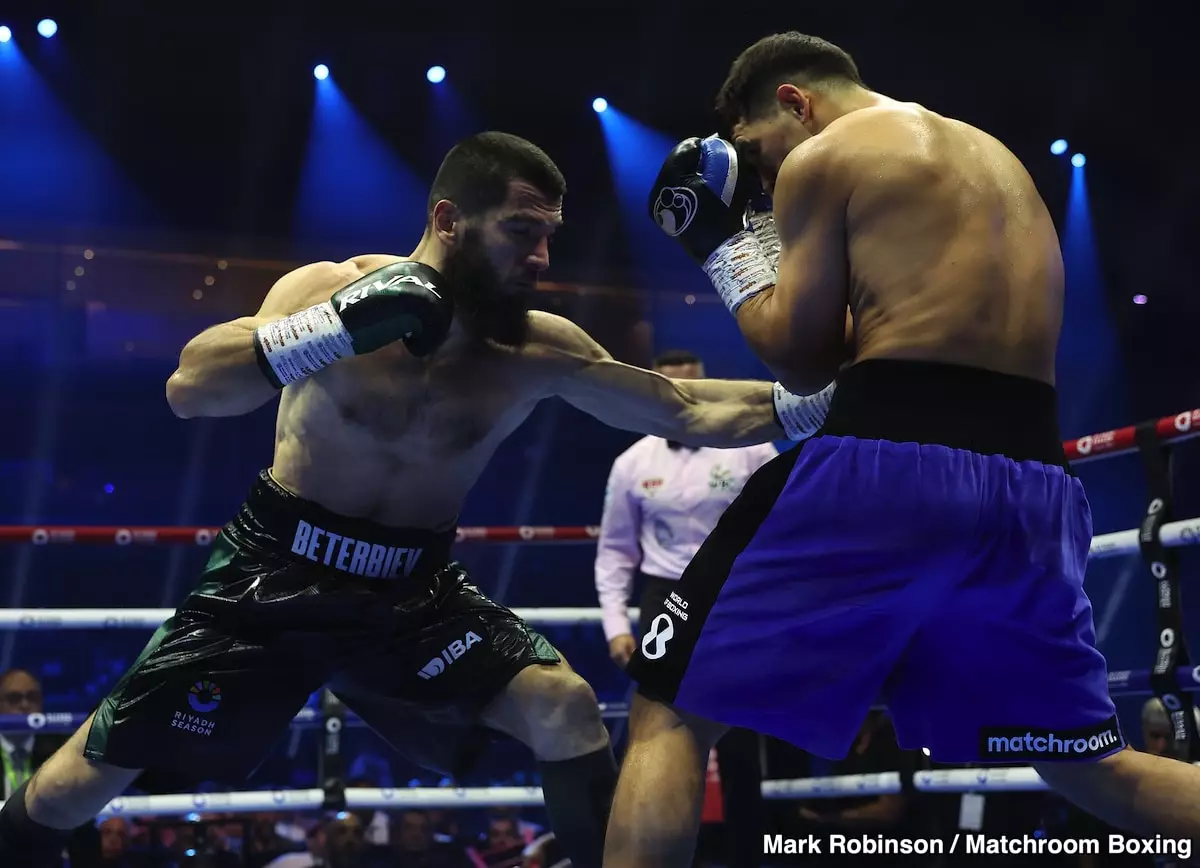In the ever-evolving world of boxing, the tactics employed by fighters and their teams often reveal the underlying psychology of the sport. Recent remarks by former champion Sergio Mora about David Benavidez’s potential strategy against Artur Beterbiev have brought the concept of “aging out” champions back into the limelight. As Beterbiev approaches his 40th birthday, the notion of waiting for an opponent to decline physically rather than facing them at their peak raises important questions about integrity, strategy, and the waning determination in competitive sports.
Boxing, like most combative sports, is heavily reliant on timing and tactics. Aging out—waiting for a champion to lose their edge before confronting them—is an established strategy. Mora’s comments suggest that Benavidez, currently unbeaten and a rising light heavyweight contender, may benefit from this calculated delay. This strategy involves not only meticulously avoiding elite competition but also banking on the natural decline that comes with age, especially as it pertains to a fighter’s resilience and recovery.
On one hand, this strategy makes logical sense; it can enhance Benavidez’s chances of victory while minimizing risk. However, one must ponder whether it ultimately undermines the authenticity and spirit of the sport. Should a high-level fighter like Benavidez, who has already established himself with a record of 29-0 and 24 knockouts, resort to such underhanded tactics instead of challenging the toughest competition head-on? In a sport that invariably values bravery and grit, the thought of biding time rather than seizing the moment can seem both pathetic and unworthy of a fighter of his caliber.
In the realm of boxing, overlooking opponents can be a double-edged sword. Mora emphasizes that fighters face risks when they step into the ring with aging champions, particularly one as dangerous as Beterbiev, who has an impressive knockout ratio of 95%. Beterbiev is known for his unforgiving fighting style, excelling in close-range confrontations where many boxers falter. This presents a challenge that should not be underestimated.
Mora’s comments become particularly relevant when he weighs in on Beterbiev’s future performance, especially in light of his potential rematch with Dmitry Bivol. Mora suggests that if Bivol can decisively defeat Beterbiev in their upcoming clash, the landscape for Benavidez may become much clearer. Should Beterbiev lose momentum and confidence, the title of “most dangerous fighter in boxing” could very well transfer away from him. This scenario illustrates how dynamic the field of boxing truly is, dependent on not just a fighter’s physical condition, but also the shifting psychological factors at play.
The strategy of allowing an opponent to “age out” raises ethical questions that linger like shadows over the sport. Is it acceptable for an aspiring champion to navigate their career in such a calculated manner, prioritizing their own success while evading potentially formidable foes? Some might argue that this approach reflects the shrewdness of a savvy athlete who is playing the long game in a sport dictated by fleeting opportunities. Others contend that it tarnishes the very essence of competition and sportsmanship, highlighting an increasing trend towards calculated risk aversion.
The allure of boxing lies not just in the spectacle of combat, but in the honor of facing one’s challengers with courage and integrity. If Benavidez were to postpone a matchup with Beterbiev purely for strategic advantage, could it lead to a loss of respect from fans who crave authenticity in their champions? The boxing community historically values the champions who are willing to fight the best, not just those who dodge risks in a bid for a safety net.
While Mora’s proposition to have Benavidez wait until Beterbiev’s age works against him may carry weight in the current boxing landscape, it opens a Pandora’s box of moral dilemmas. Balancing the tactical with the ethical is a challenging endeavor for any fighter. As the boxing world watches the next round of confrontations unfold, the question remains: how will the contenders proceed—by embracing the spirit of competition or by opting for the safety of calculated moves? In boxing, as in life, the choices made today will resonate deeply into the future, shaping legacies and defining the sport for generations to come.

